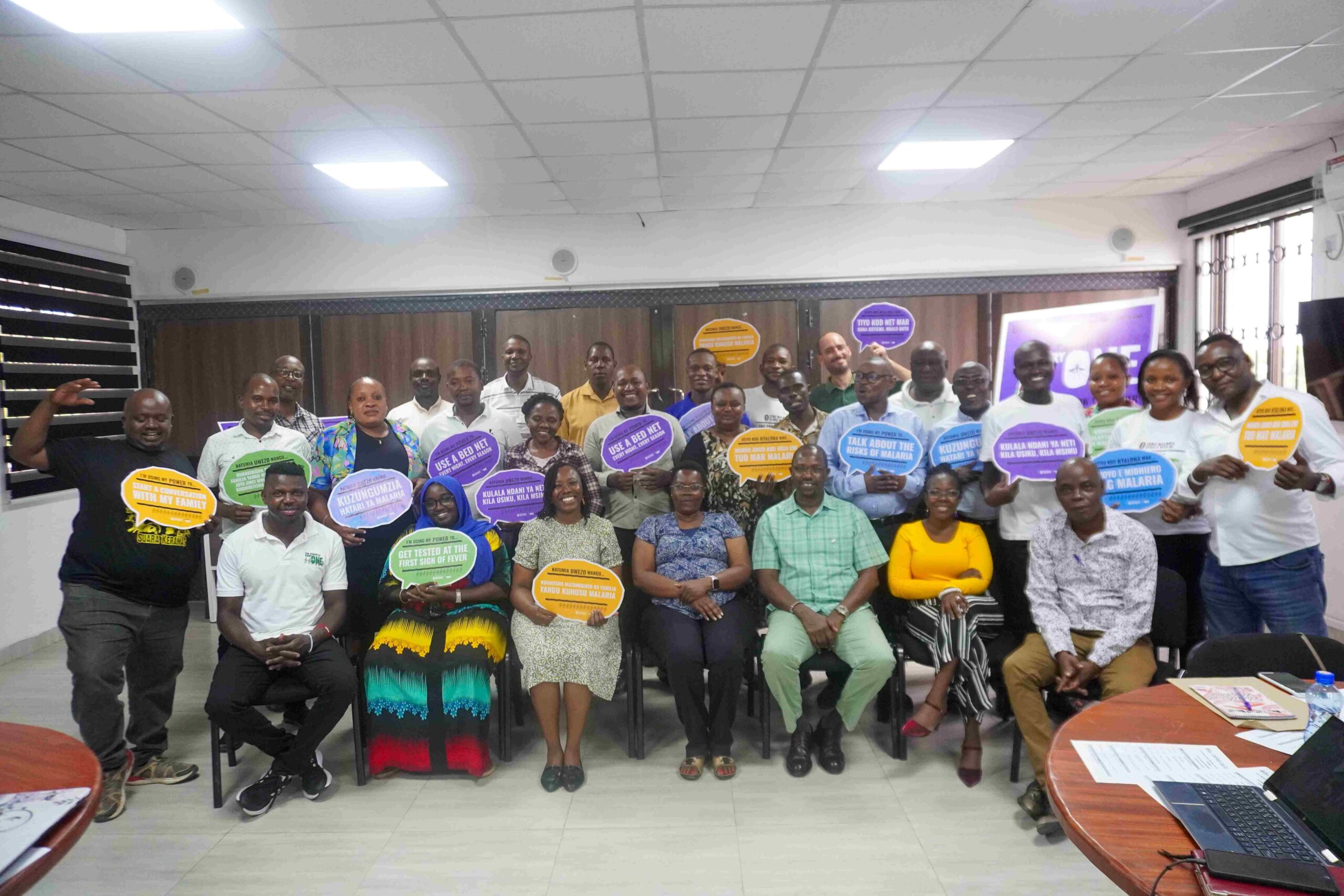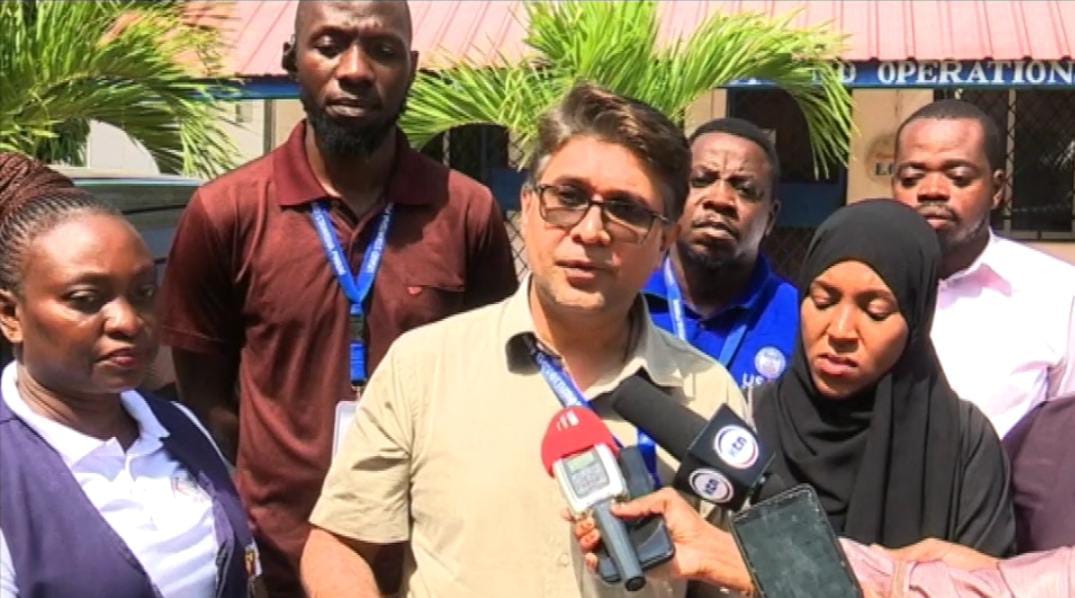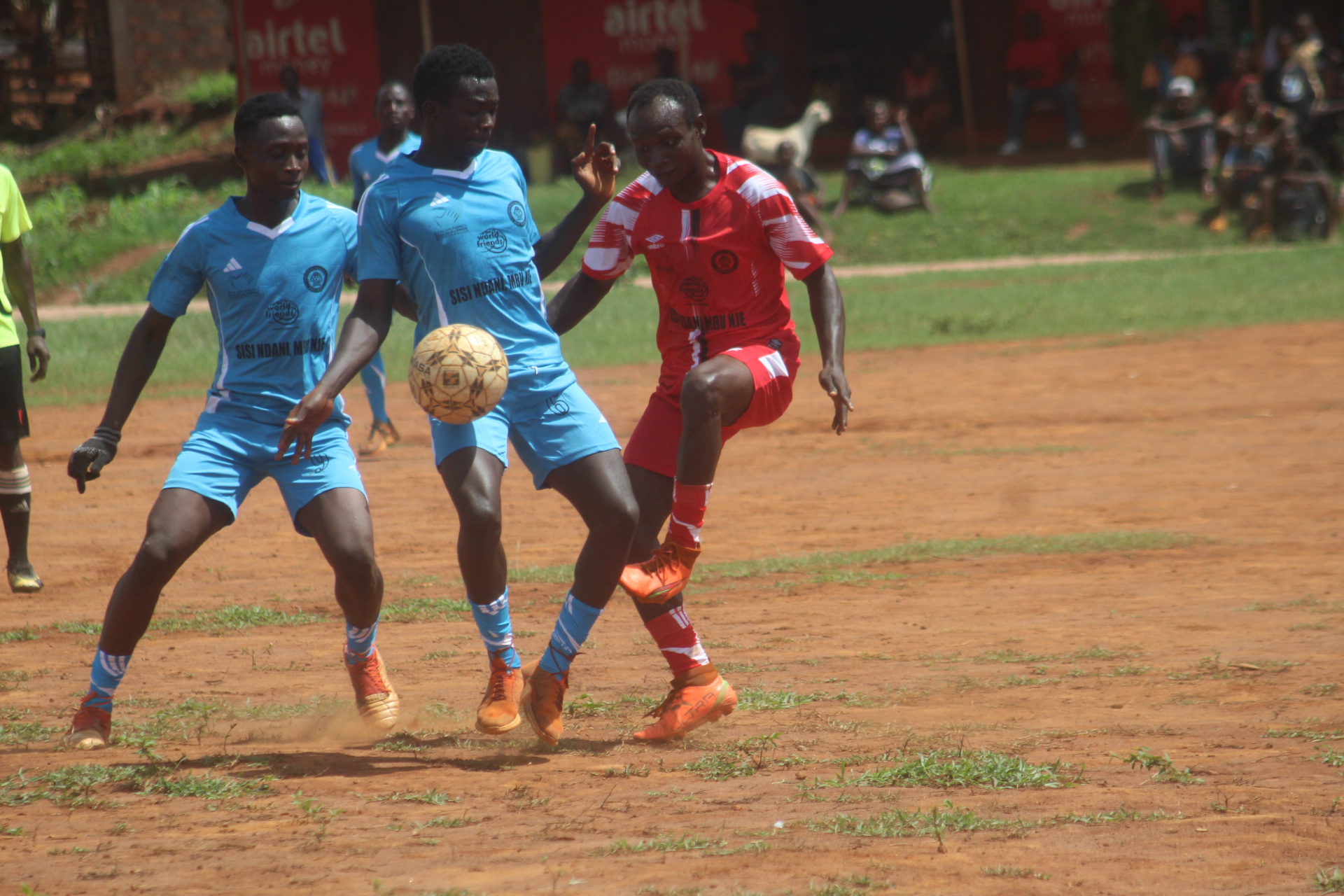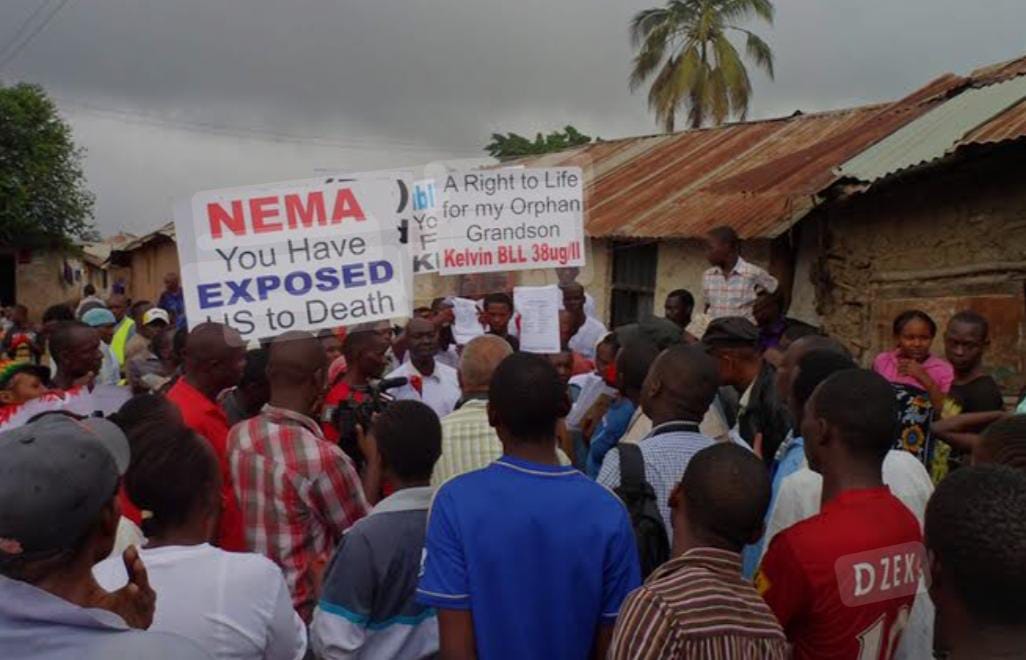Kilifi County’s head of the Preventive and Promotive Unit, Catherine Munywoki, seated at the center in a blue top, along with other health workers, during a media engagement training session. Photo credit Zero malaria campaign
In Rabai Constituency, Kilifi County, community health promoters, under the guidance of health practitioners, have been playing a crucial role in educating residents on maintaining a clean environment to eliminate malaria breeding grounds and prevent infections.
Peter Mazera, from Maereni – Kambe village, serves as the chairman of Jeuri Community Health Clinic. He has been a community health promoter for nearly 14 years. He acknowledges that the village has long struggled with high prevalence of malaria infection.
“There are a lot of stagnant water pools, and also people are used to storing water in open containers, providing breeding grounds for mosquitoes,” he explained.
Jane Sada, another community health promoter from Mbwaka village in Kambe, has been in the role for nine years, covering 37 households in her area.
Sada highlighted some of the challenges she faces in encouraging residents to adopt preventive measures against diseases like malaria. One common issue is residents refusing to sleep under mosquito nets, believing that the nets are infested with bedbugs.
“Many people refuse to sleep under nets in this area, claiming they have bedbugs and some even claim they talk. I was left wondering, do nets really talk?” Sada questioned.
Chimwaga Mwamuye, the Malaria Control Coordinator for Kilifi County, speaking at a media training on malaria in Kilifi, organized by the Kilifi County Department of Medical Services, Public Health & Sanitation in collaboration with the Zero Malaria Campaign Coalition, said Kilifi is one of the counties with high incidence of malaria cases. With Kambe–Ribe area in Rabai constituency being among the areas most affected by the disease.
Other areas include Chalani-Kaloleni, Jaribuni-Ganze, Jibana, and the Mtepeni and Chonyi areas in Kilifi South.
“Looking at these areas, we can see that they are all located within a specific belt, characterized by kaya (sacred) forests and rivers, which contribute to the high prevalence of malaria,” said Mwamuye.
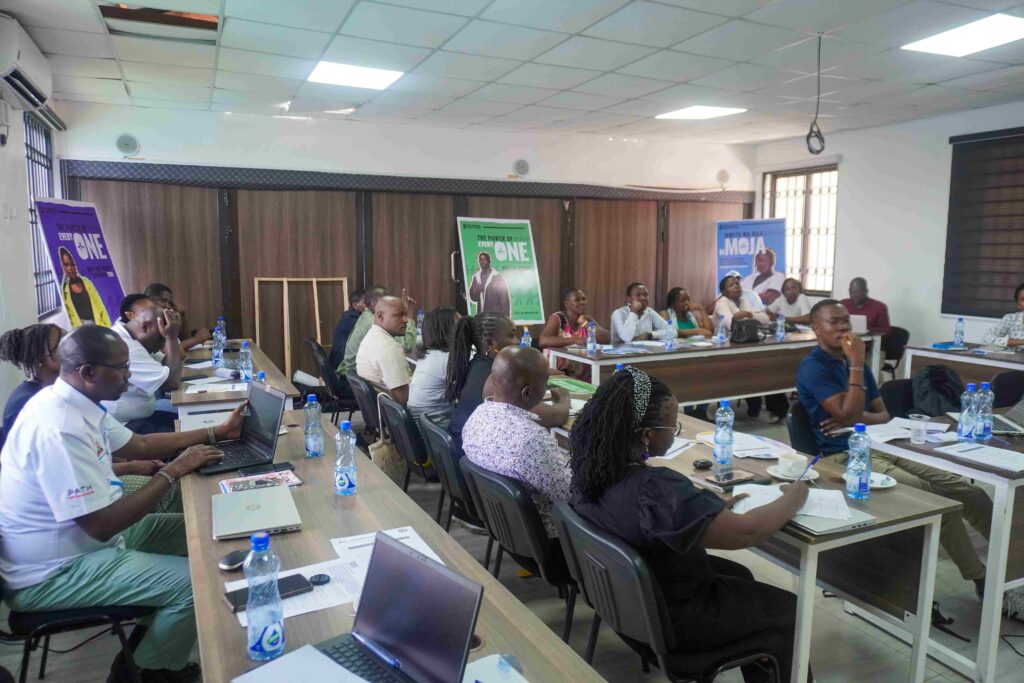
Journalists from various media houses along the coast participating in a media training on malaria in Kilifi. Photo credit Zero malaria campaign
Mwamuye added that despite these challenges, efforts have been made to reduce malaria cases by implementing a Test, Treat, and Track system.
“What we do is for everyone found with malaria, we connect them with community health promoters (CHPs) who visit their homes to check if they have mosquito nets, ensure proper usage, and provide education on the correct use if necessary. This approach has helped reduce infections within households,” he explained.
In addition to these measures, Mwamuye said the county has been distributing free mosquito nets to pregnant women to protect both the mothers and unborn child from the risk of malaria.
“We employ various strategies for vector control, starting with raising awareness and encouraging people to maintain clean environments. CHPs also spray insecticides in stagnant water areas believed to be mosquito breeding grounds,” Mwamuye noted.
This ongoing efforts by community health promoters like Mazera and Sada, Mwamuye said they are crucial in the fight against malaria, as they strive to overcome misconceptions and promote healthier practices in their communities.
These efforts, Mwamuye said have led to a reduction in the prevalence of malaria in Kilifi County. “The latest Kenya Malaria Indicator Survey shows that the prevalence of malaria in Kilifi has decreased from 8% to 5%,” he stated.
He also addressed misconceptions about the mosquito nets provided to the community.
“There are myths in the community that the nets talk. I want to clarify that the nets do not speak at all. Often, when a person does not sleep under a net, they may be disturbed by mosquito bites and have trouble sleeping, but once they sleep under a net, they have a deep sleep and may dream, which leads to the false belief that the nets talk,” he explained.
He further clarified that the nets are safe and free from bedbugs.
“The nets are manufactured and certified to be safe. What we observed is that bedbugs often hide in the corners of beds, and the insecticide on the nets might disturb them, causing them to move around and appear on the nets,” he clarified.
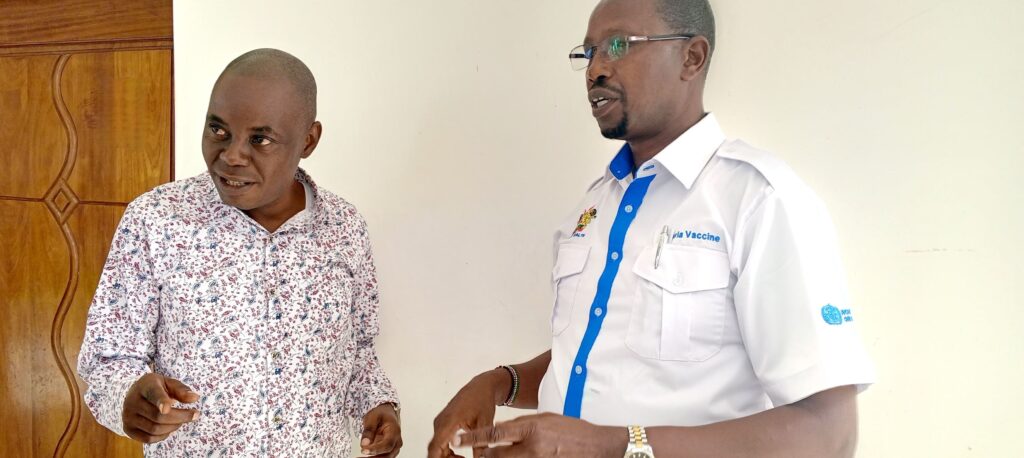
Left, Chimwaga Mwamuye, the Malaria Control Coordinator for Kilifi County and James Sang, the Program Officer National Malaria Control Programme.Photo credit Anthony Mwachiro.
To further support these efforts, various stakeholders have partnered with counties heavily affected by malaria to work towards eradicating the disease.
The Zero Malaria Campaign Coalition (ZMCC) in Kenya launched a campaign titled “The Power of Everyone” in February this year, aiming to end malaria in Kenya by 2030. The coalition is a group of partners committed to this goal.
Daniel Adipo, the Africa Project Director for Malaria No More UK and a member of the ZMCC Secretariat, said the campaign’s focus on collective responsibility in combating malaria.
“It doesn’t matter who you are, whether you are a bodaboda (motorbike taxi) rider, a fisherman, or a parent; everyone has a role to play. That is the essence of ‘The Power of Everyone’ campaign, ensuring that everyone takes their position,” he explained.
Adipo noted that the campaign is currently active in three counties, Kisumu, Kakamega, and Kilifi where malaria cases are particularly high. The campaign targets behavior changes among community members in these regions.
“The behaviors we are addressing include ensuring everyone sleeps under mosquito nets every night, regardless of the season. Second, pregnant women to go for early antenatal care which is essential to protect both mother and baby from malaria, we also encourage families to have open discussions about malaria and emphasizing the importance of visiting local health facilities within 24 hours of the first signs of malaria for prompt testing and treatment,” Adipo outlined.
He expressed hope that with everyone actively participating in the fight against malaria, achieving the vision of eradicating malaria by 2030 is possible.
“These are the key messages we are delivering to the communities, and we believe that if everyone gets involved, the Vision 2030 goal is attainable,” he stated.
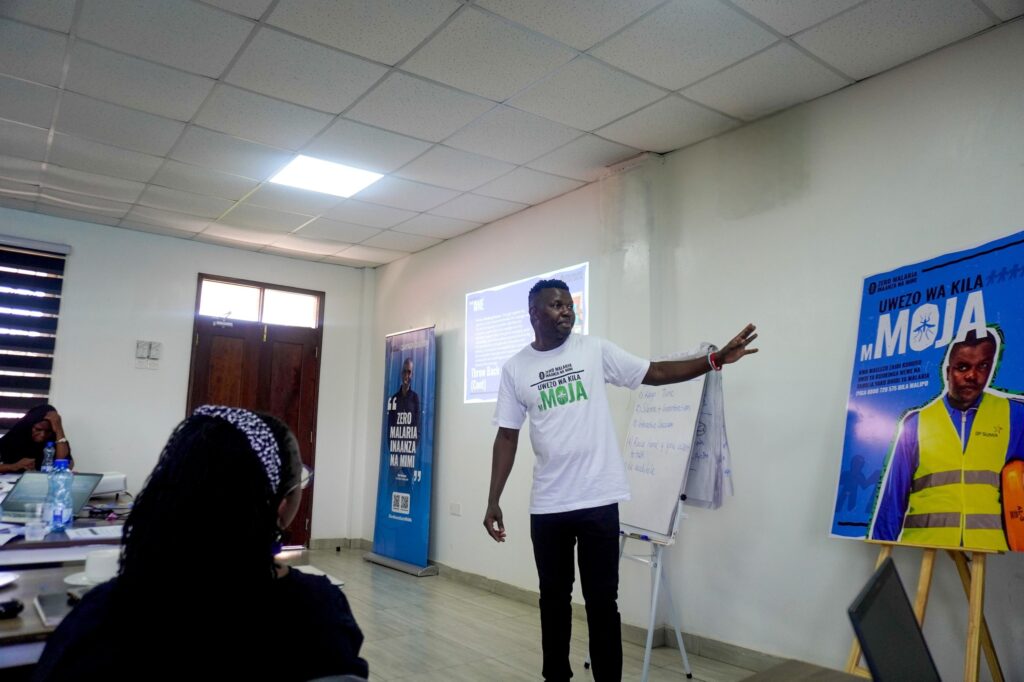
Daniel Adipo, the Africa Project Director for Malaria No More UK and a member of the ZMCC Secretariat. Photo zcredit Zero malaria campaign
James Sang, the Program Officer National Malaria Control Programme said the current malaria prevalence in Kenya stands at 6%.
He said the Lake Victoria region has the highest prevalence at 19%, followed by the coastal region at 5%, with other parts of Kenya ranging between 2% and less than 1%.
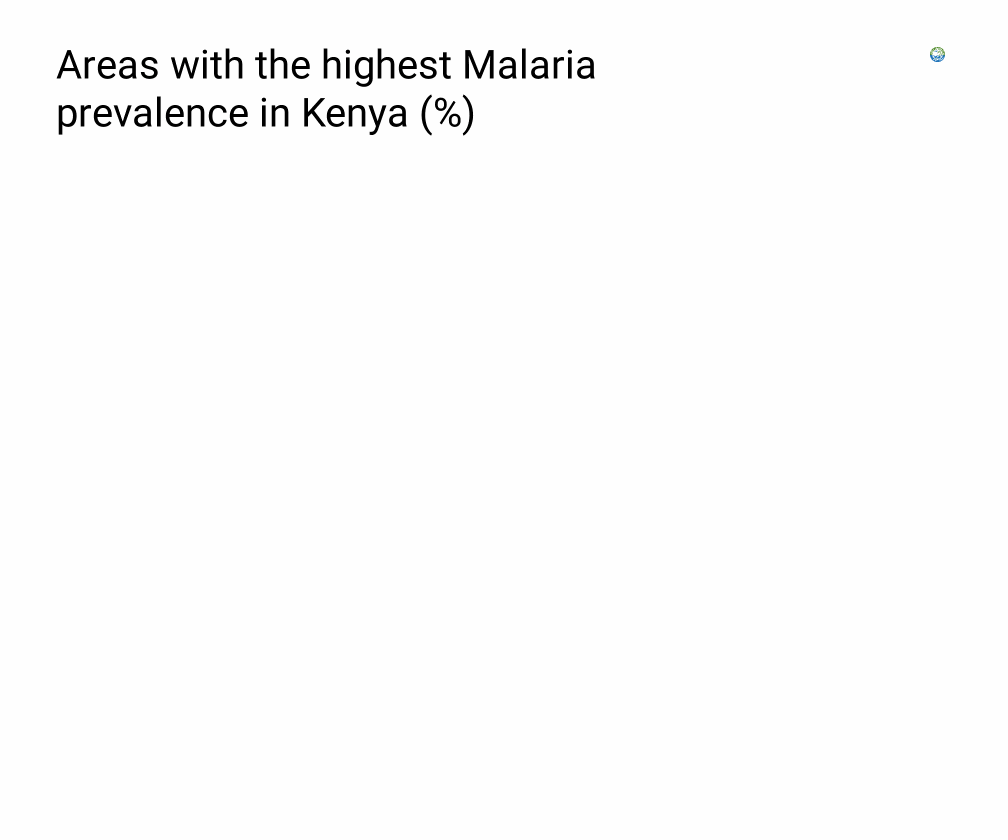
According to the 2020 Kenya Malaria Indicator Survey, the prevalence in the coastal region has decreased from 8% to 5%, which Sang described as encouraging evidence that various health stakeholders’ efforts are making a positive impact and could potentially eliminate the disease altogether.
Sang emphasized the importance of extending the “The Power of Everyone” campaign to grassroots areas.
He stated, “While other stakeholders provide resources to prevent malaria, the primary target is the general public, who must utilize these methods to protect themselves from the disease. Therefore, we aim to take this campaign to rural areas to educate communities, encouraging each person to participate and contribute to eradicating malaria completely.”
Reflecting on the success of projects in the coastal region, Sang concluded, “The projects we have implemented in the coastal region have shown promising results. We cannot afford to relax, we need to press on and accelerate the reduction of malaria prevalence from 5% to below 1%, similar to other counties.”

